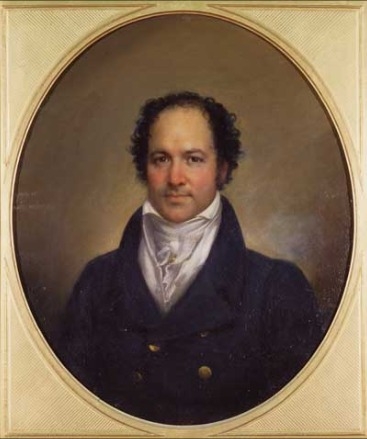Benjamin Watkins Leigh
| Benjamin Watkins Leigh | |
|---|---|
 |
|
|
United States Senator from Virginia |
|
|
In office February 26, 1834 – July 4, 1836 |
|
| Preceded by | William C. Rives |
| Succeeded by | Richard E. Parker |
| Member of the Virginia House of Delegates | |
|
In office 1811-1813 |
|
| Personal details | |
| Born |
June 18, 1781 Chesterfield County, Virginia |
| Died | February 2, 1849 (aged 67) Richmond, Virginia |
| Political party | National Republican |
| Alma mater | College of William and Mary |
| Profession | Lawyer, politician |
Benjamin Watkins Leigh (June 18, 1781 – February 2, 1849) was an American lawyer and politician from Richmond, Virginia. He served in the Virginia House of Delegates and represented Virginia in the United States Senate.
Benjamin Watkins Leigh was born in Chesterfield County on June 18, 1781, the son of the Reverend William Leigh (d. 1787) and Elizabeth (Watkins) Leigh (d. 1799). He attended the College of William and Mary, studied law, and began practicing in Petersburg in 1802, as well as helped raise his younger brother William.
Benjamin Watkins Leigh married three times: on December 24, 1802, to Mary Selden Watkins; on November 30, 1813, to Susan Colston; on November 24, 1821, to Julia Wickham.
After representing Dinwiddie County in the Virginia House of Delegates 1811-13, Leigh moved to Richmond, where he rose rapidly in his chosen profession. He prepared the revised Code of Virginia in 1819, was a delegate to the Virginia Constitutional Convention of 1829-1830, a reporter of the Virginia Court of Appeals 1829-41, and was again elected to the Virginia legislature, representing Henrico County in the session of 1830-31. Leigh was appointed by the state legislature as a Whig to the United States Senate to fill the vacancy caused by the resignation of William Cabell Rives; he was reappointed to represent tidewater Virginia slaveholders in 1835.
During Leigh's time in the Senate, the controversy over slavery reached new levels of intensity. The House of Representatives passed a "gag rule" tabling all anti-slavery petitions, and a similar measure died in the Senate, though that body approved an alternate method of ignoring such petitions. President Jackson called on the Congress to censor anti-slavery publications from the federal mails, a bill the Senate defeated 25-19. Leigh proposed a statewide boycott of pro-emancipation newspapers, writing that Virginians had the right "to suppress to the utmost of our power what we deem inflammatory, dangerous, mischievous."
...
Wikipedia
